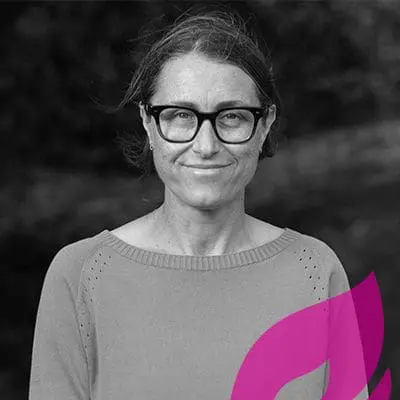

Trifecta Education
Dr. Christina Agvent, with more than 30 years in the field, blends technology and learning. With a PhD in Adult Learning and Development and an MA in Computers in Education, she transitioned from a public school teacher to a higher education administrator. Dr. Agvent champions rethinking education to incorporate AI, focusing on its ethical and effective use. Through her books "AI-engagED: Future-proof Education" and "GPT3: Villain or Superhero," she offers practical strategies for enhancing education with AI. She consults on AI's ethical integration in education and speaks widely on the topic. More at www.TrifectaEducation.com.

Professor, Faculty of Science, Psychology
Waipapa Taumata Rau, University of Auckland
Dr. Virginia Braun (Ginny; she/her they/them) is a Professor in the School of Psychology at Waipapa Taumata Rau, University of Auckland. A feminist and critical health psychologist, Ginny teaches and researches gender, sex/uality and health related topics. However, Ginny is most known for the development of an approach to thematic analysis (with AP Victoria Clarke and others), and for qualitative methodological writing more broadly. Award winning books with Victoria Clarke are Successful Qualitative Research: A Practical Guide for Beginners (Sage, 2013) and Thematic Analysis: A Practical Guide (Sage, 2022). They also edited (with Dr. Debra Gray) Collecting Qualitative Data: A Practical Guide to Textual, Media and Virtual Techniques (Cambridge, 2017) and have websites on thematic analysis (thematicanalysis.net) and story completion (storycompletion.net).

Sensory Consumer Science Program Director
Senior Faculty Research Assistant II, Food Innovation Center, Oregon State University
Ann is currently in her 23rd year at the Food Innovation Center in Portland, Oregon, an off-campus Oregon State University Experiment Station, where she serves as the Sensory Program Director. She assists industry clients with sensory and consumer testing and collaborates in mission-oriented research designed to advance Northwest agriculture and food products. Recent work includes: cross cultural acceptance and food neophobia studies of barley tea and kombucha in the U.S., Korea, and Spain; defining market acceptance of U.S. grown tea in Japan, Taiwan, and Korea; investigating motivations for meat consumption/reduction relating to sustainability, environmental considerations, and demographics; consumer testing of novel edible film packaging; testing claims using auction methodology to test how apple quality drives purchase behavior; consumer assessment of a novel product category – Pacific NW bigleaf maple syrup; consumer assessment of Oregon grown olive oil vs. foreign imports, among others.

Professor Emeritus
Arizona State University
Johnny Saldaña is Professor Emeritus from Arizona State University’s School of Film, Dance, and Theatre. He is the author of Developing Theory Through Qualitative Inquiry, Longitudinal Qualitative Research: Analyzing Change through Time, Fundamentals of Qualitative Research, The Coding Manual for Qualitative Researchers, Thinking Qualitatively: Methods of Mind, Ethnotheatre: Research from Page to Stage, Writing Qualitatively: The Selected Works of Johnny Saldaña, co-author with the late Miles and Huberman for Qualitative Data Analysis: A Methods Sourcebook, and co-author with Matt Omasta for Qualitative Research: Analyzing Life. Saldaña’s qualitative methods works have been cited and referenced in more than 37,000 research studies conducted in over 135 countries.

Connect with us today for a personalized demo and start making data-driven decisions with confidence!